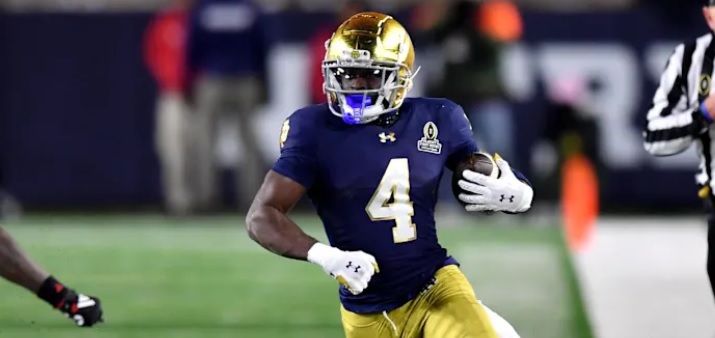The pre-game coin toss is, at its core, the ultimate act of neutrality. It is the moment when high-stakes strategy yields to pure, unadulterated chance—a simple fifty-fifty proposition. Despite its seemingly trivial appearance, this brief ceremony carries disproportionate weight in terms of tactical significance across the global sports landscape. Far from being a mere relic of tradition, the roll of the dice is a critical decision point that dictates the initial field advantage, sets the strategic tempo, and can occasionally influence the outcome of a primary contest.
This small but powerful ritual underscores the enduring role that pure chance maintains in a world obsessed with control and statistics. It dramatically illustrates a key principle: the initial distribution of luck can fundamentally alter a game’s course. This fascination with the unpredictable is universal, attracting strategists and casual observers alike. The element of chance defines many competitive spheres, from the opening of a sports contest to the random outcomes found in online pursuits, such as those detailed on a Casino NV website. Understanding where and why this arbitrary beginning holds such importance reveals a compelling intersection of tradition, psychology, and high-level strategy.
The Strategic Depth of a Simple Flip
While the concept is merely “heads or tails,” the decision that follows a successful toss win is complex. In modern professional sports, especially American football, the coin toss affords a critical range of choices—receive, kick off, or defer possession—all carefully planned by the coaching staff.
The most common choice in the NFL and college football is to “defer.” This means the winning team passes the choice for the first half to the opponent but secures possession to start the second half. This strategic deferral is rooted in the immense tactical value of receiving the ball after halftime, as it allows a team to implement mid-game adjustments and potentially score to gain crucial, immediate momentum in the third quarter. This move reflects the belief that the start of the second half offers a more profound strategic advantage than the opening of the game itself.
The Overtime Conundrum in Football
The coin toss truly elevates from a strategic choice to a potential game-winner in the high-pressure environment of overtime. For years, the NFL’s “sudden death” rule meant that the team winning the overtime roll of the dice and scoring a touchdown on the opening drive instantly won the game. This system was heavily criticized for making the coin flip, rather than skill, the decisive factor in determining the outcome.
While the rules have been modified to ensure both teams have at least one possession in the playoffs, unless the first team scores a touchdown, the toss remains disproportionately influential. Even with the current rules, winning the toss provides a significant advantage, as it allows the team to possess the ball second. This means the team knows exactly what it needs to do to win or extend the game, whether it requires a field goal or a touchdown. This knowledge advantage often proves insurmountable, highlighting the flip’s continuing legacy as a point of high contention.
Where Weather and Field Condition Tip the Scales
In certain outdoor sports, the coin toss is not about ball possession but about a more primal fight against the elements. Here, winning the toss allows a team to mitigate or exploit natural forces that can drastically alter performance, turning the random flip into a truly marginal gain.
Cricket: The Battle Against the Pitch
Perhaps nowhere is the coin toss more critical than in Test match cricket. The captain who wins the toss chooses whether to bat or bowl first, a decision fundamentally dependent on predicting how the pitch and weather will change over the next five days.
Consider the following factors that influence this decision:
- Pitch Deterioration: Pitches often start firm but degrade over time, favoring spin bowlers by days four and five. A captain may choose to bat first to rack up a score on a better surface.
- Overhead Conditions: Cloud cover and humidity can make the ball swing more, heavily favoring the fielding side early in the match.
- The Element of Light: Especially in matches with day-night conditions, choosing the optimal time to bat under lights, which can be challenging for batsmen, becomes a critical calculation based on the toss.
In this sport, the coin toss is an initial, high-level tactical assessment that can genuinely tilt the probability of victory toward one side before a single ball is legally bowled.
Soccer and Tennis: Minimizing Natural Disadvantages
In both association football (soccer) and tennis, the toss winner gets to choose between kicking off (or serving) and selecting the side of the field or court to begin on. This decision is rarely neutral and is typically guided by environmental factors.
- Sun and Wind: A strong wind can make clearances or long passes unpredictable in soccer, while sun glare can obstruct the goalkeeper’s view. Choosing to defend against a strong wind in the first half ensures the team has the advantage in the critical second half.
- Tennis Serve Advantage: The choice to serve first in tennis gives a player an immediate edge, allowing them to dictate the opening tempo of the match. While marginal, this early confidence boost can be vital in high-pressure matches.
Seizing the Competitive Edge
The coin toss is so much more than a prelude; it is the ultimate, thrilling reminder that every contest starts on a level playing field. Its enduring presence is deeply rooted in tradition, fulfilling the vital psychological need for a clean, universally accepted beginning. This ritual marks the definitive end of exhaustive preparation and the exhilarating transition to the battle phase, creating a moment of shared, dramatic anticipation for everyone involved. Ultimately, the fifty-fifty toss beautifully encapsulates the core theme of sports: the brilliant blend of meticulous strategy and the unpredictable rush of chance. It challenges champions not only to plan for success but to possess the resilience to conquer fate. Embrace the tension, for the flip is where the true drama of competition begins!




